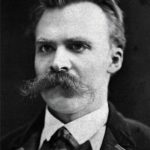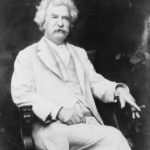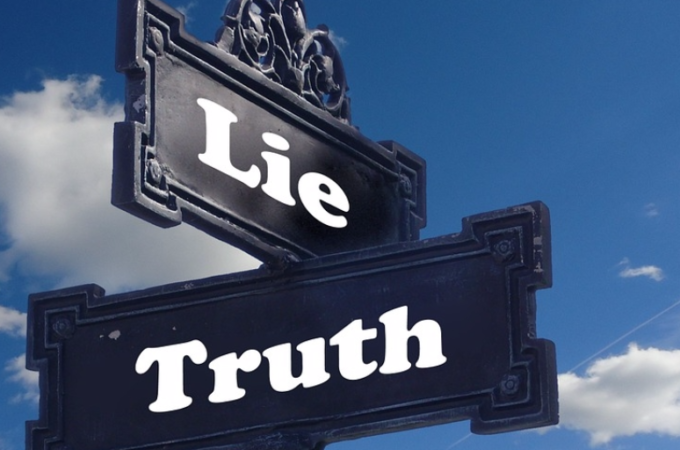Nancy Pearcey’s book Finding Truth is a must read for those who understand that we live in the real world, not a world of illusion, the product of our own imagination.
At Darrow Miller and Friends we have been writing on issues related to the “post truth” culture that we now inhabit. We have sought to make a distinction between truth and narrative, between the subjective and the objective.
Richard Pearcey’s powerful foreword to his wife’s book addresses this matter very effectively. Here is part 2.
Finding Truth: The Foreword … part two.
Truth has an auspicious heritage; it is rooted in the Bible, seen in the words of Christ Himself. It comports with everyday reality. Yet many of our contemporaries find solace in what Francis Schaeffer describes as an “escape from reason.” They accept polite society’s dumbed-down redefinition of faith as something totally privatized — that is, a commitment so private and so personal that evaluation and evidence are irrelevant.
 This is a far cry from the holistic respect for information that characterizes a biblical worldview. Scripture nowhere encourages the notion that “faith” equals commitment quarantined from evidence or isolated from the mind — the “will to avoid knowing what is true,” as the philosopher Nietzsche put it his work The Antichrist.
This is a far cry from the holistic respect for information that characterizes a biblical worldview. Scripture nowhere encourages the notion that “faith” equals commitment quarantined from evidence or isolated from the mind — the “will to avoid knowing what is true,” as the philosopher Nietzsche put it his work The Antichrist.
To accurately reflect the biblical emphasis, we must acknowledge that a falsified “faith” is quite properly a lost faith. It is a futile faith and therefore not worth keeping. But this sharp challenge cuts in a positive way as well.
For we must also say that a confirmed faith, or better, a well-grounded trust, is well worth embracing by the whole person. In fact, the word “trust,” rather than the now-privatized words “faith” or “belief,” better captures the understanding of commitment set forth in the Bible. The New Testament Greek word often translated as “believe” is more accurately rendered as “trust” (from the word pistis, “trust” or “believe,” rooted in the word peitho, “I persuade”). The biblical attitude is one of persuasion, a will to verify and know what is true and to respond accordingly.
 Mark Twain once described faith as “believing what you know ain’t so.” But that definition of faith “ain’t so,” at least among those who operate on the biblical insistence to live an examined life. This approach expresses a profound respect for the human being as a person made in the image of a knowable God who affirms the mind as good and who embraces this world as a rightful arena in which to evaluate truth claims.
Mark Twain once described faith as “believing what you know ain’t so.” But that definition of faith “ain’t so,” at least among those who operate on the biblical insistence to live an examined life. This approach expresses a profound respect for the human being as a person made in the image of a knowable God who affirms the mind as good and who embraces this world as a rightful arena in which to evaluate truth claims.
Into this setting Finding Truth arrives, a timely, strategic, and principled call to transcend mere belief and privatized “faith” in order to identify truth that merits trust. You may be a student or a worker, a professor or an officeholder, an artist or a scientist — all who engage this book will find encouragement to think humanely and critically about possible answers to ultimate questions. You will be invited to consider how verifiable historic Christianity incisively and rightly answers the great questions of life, “outperforms all other worldviews,” and “fulfills humanity’s highest hopes and ideals,” as Nancy Pearcey states in this book.
Finding Truth sets forth a set of key strategic principles by which to evaluate the authenticity of any worldview, whether encountered in the classroom, at the office, in the news, or on the street. In this book you will be equipped to critically examine secularism and other idols of our day as they are advanced in the garb of politics, science, entertainment, or religion.
You will also see doctrines of atheism and materialism put to the test, to assess whether they stand up under critical thinking. And you will explore faiths such as relativism and postmodernism, to consider whether they merit the informed trust of the human being.
The stakes are high. Finding Truth argues that no secular worldview adequately accounts for the phenomena of man and the cosmos — what we know of human nature and physical nature. For these worldviews see only a slice of reality and then try to direct human beings into measuring themselves by that narrow slice and living accordingly. Materialists thereby deny the reality of mind (while they use their minds to advance materialism), determinists deny the reality of human choice (while they choose determinism), and relativists deny the fact of right and wrong (while they judge you if you disagree).
These unfortunate theories do more harm than good. They undercut mind and reasoning, choice and freedom, truth and moral ideals. Inevitably, then, people who place their trust in such solutions begin to order their lives in ways that are less than humane. Likewise, cultures in the grip of inadequate worldviews begin to actualize societies that are less than humane. Ideologues may advance their idols under politically correct banners of tolerance, diversity, and fairness, but the actual impact is regress, not progress, fragmentation, not wholeness. People are crushed. The human being necessarily revolts against gods that fail.
For many journeying through the twenty-first century, losing “faith” and saying good-bye to empty answers may be key to finding livable solutions to the great questions of life. Finding Truth articulates a rationale and a strategy to critically evaluate the possible answers to the big questions of life and to seek solutions that reconnect our deepest longings with our highest aspirations. Offered here is a humanizing unity of fact and meaning that open-minded people can consider and discuss, test and examine, and then actualize with integrity across the whole of life. This is good-bye to privatized religion and hello to a knowable and verifiable God. It is holistic trust grounded in the facts of life.
A wise traveler who goes off course retraces his steps to get back on track. So let there be no doubt among atheists, hymnists, and others on the journey of life: To be human is to write, to compose, to create, and to dream. So is to think, to test, and to know why. Now in Finding Truth you have a guide to help show the way.
- Rick Pearcey
Rick’s article was first posted at Nancy Pearcey.






